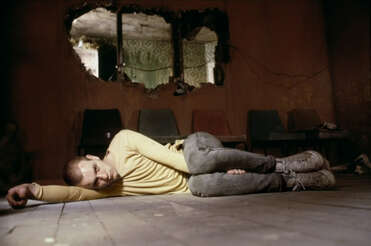Occasionally you'd hear about older teens experimenting with speed or rohypnol, but in the circles that I ran in, things weren't really getting that heavy and we all just naively believed that it was only the 'kids that ran on the wrong side of the tracks' that were getting into the 'heavier' stuff anyway.
I do still believe that most of the teenagers that were hanging out in my neighbourhood were actually just happy to experiment with alcohol and nicotine in the 80's and early 90's, although some of the really edgy kids that I knew were dropping acid tabs and going on psyc anthropic trips into other realms on the weekends, but no-one seemed to be experimenting with anything heavier than that.
When I was younger I was so uneducated about drugs that I actually thought that highly addictive drugs like heroin, cocaine or smack were reserved only for 'serious' drug addicts. I thought that only people that were much older than me would even be able to afford or score drugs of that calibre and I suppose that kind of thinking allowed me to keep highly addictive drugs at a safe distance in some inaccessible realm that I would never need to enter. However in truth, those drugs were actually far closer than I realised at the time and the menu of drug choices was far more substantial than I had ever perceived it to be as well.
Today, teenagers are exposed to the risk of addiction from many more substances than I was ever exposed to, and even though alcohol and marijuana have been cited as the most commonly used drugs across the past four generations, what we are now seeing is a terrifying rise in young people using crystal meth (aka ice), synthetic drugs and (believe it or not) over the counter pain medications. However, what we also need to take into account is the fact that our teenagers are now far more educated and aware than they have ever been before and that kind of awareness is valuable and powerful, especially when we are talking about voluntary drug use. In fact, statistics show that it is not our young people that are at the biggest risk of having serious drug addictions anymore; the real truth about modern drug addiction is actually quite different than what you might have thought that would be.
Due to the their wide range of health issues, social exclusion and isolation issues, it is actually the elderly (64 to 86 years) who have the largest number of people that are abusing illicit substances these days. And perhaps just as equally shocking is the 11% of women over 50 years that are currently addicted to prescription medications. Which means that there are actually drug pushers sitting at our community clinics disguised as health care providers! We know this because the biggest rise in drug addiction in the last decade has occurred due to the drugs and medications that doctors are over-prescribing. Turns out that some of our friendly local GP's are now some of the most prolific drug peddlers in town, addicting more and more people to prescription drugs every year and doing it all legally as well!
After a little digging I found a list of the most commonly abused drugs and it's really no surprise that it looked like this: barbiturates, benzodiazepines, sleep medications, codeine, morphine, oxycontin, percocet, vicodin, amphetamines, methylphenidates (ritalin) and DMX. All of them prescription drugs.
However, the five most addictive drugs are: heroin, cocaine, nicotine, barbiturates and alcohol. And even though marijuana is the most abused drug worldwide with approximately 27.1 million users, it is not known as a highly addictive drug and is widely considered to be the safest recreational drug, however it is known as a gateway drug that can lead to other serious substance addictions, like Twisties, Cheezels and Doritos.
Sorry, I couldn't resist, but in reality drug abuse and drug addiction is certainly no laughing matter, and whether you've dabbled yourself, still partake or just have a curious mind about it all, always remember that all drugs, even something as innocuous as caffeine, come at a price to your overall health and wellbeing. So when it comes to the question 'to drug or not to drug?' I always try not to drug as much as possible, but I still can't resist a good whiskey on a Saturday night, and even though I don't ever want to seem flippant about alcohol abuse, I do believe that it hardly puts me into the Trainspotting stakes of addiction does it?

Release Date: 1996
Rating: R 18+
Running Time: 94 mins
Based on the Irvine Welsh novel of the same name and directed by Danny Boyle, this gritty dark comedy/drama follows the struggles of a group of heroin addicts during the late 1980's economically depressed area of Edinburgh. The film had an immediate impact on popular culture and gained a cult following due it's mixture of music and wildly perverse events that created it's own ravey-hypnotic style.
Heroin addict Renton (Ewan McGregor) just goes from one bad idea to the next in an attempt to feed his growing appetite for drugs. His friends Sick Boy, Begbie, Spud and Tommy are all just as haphazard as he is, so Renton attempts to get clean and get on with his life. However, he finds that leaving the drug scene and his friends behind is not going to be an easy task.
Beyond drug addiction, Trainspotting is also exploring other themes like urban poverty and the squalor surrounding the 'culturally rich' area of Edinburgh. It is a grimy and unsettling romp through the world of addiction, filled with youthful energy and seething in a pit of it's own filth, Trainspotting is a dark ride that is dynamic and disturbing in equal measures.
FINAL SAY: Choose Life.
4.5 Chilli Peppers

 RSS Feed
RSS Feed